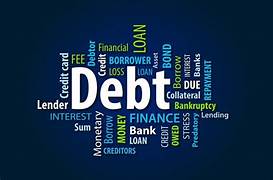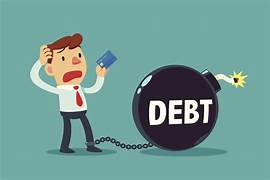How do I get rid of business debt?
 If your business has accumulated more debt than it can handle, it’s crucial to figure out how to get things back on track. Neglecting the issue will only worsen matters and could ultimately dissolve your business.
If your business has accumulated more debt than it can handle, it’s crucial to figure out how to get things back on track. Neglecting the issue will only worsen matters and could ultimately dissolve your business.
Here are seven ways to manage business debt:
- Analyze your budget and cut costs
Closely examine your budget to get a clear picture of what you’re spending where and what’s causing your debt problems. Check that your budget is accurate and make changes where necessary. Then, determine whether there’s anywhere you can make cutbacks to save money. You might achieve this through several minor cuts or one significant reduction.
If you still need to do so, consider using accounting software. It helps you manage your budget and stay on top of your finances.
- Prioritize your debts
Prioritizing your debts will help you determine which debts are critical and could ruin your business if left unpaid and which can be put lower down the list.
There’s no set order – each business is different. In general, employees’ wages should be high on the list, as should payments to business suppliers. Rent and utility bills should also be a high priority, as falling behind could result in losing your business premises or cutting your electricity off. Failure to pay these bills could also harm your credit rating.
Payments for insurance and unsecured debt, such as credit cards, could be lower, but remember that interest rates and late payment charges can quickly add up. Late payments can affect your credit rating
- Speak to your creditors.
Getting in touch with your creditors is essential in dealing with your debts. Be honest and explain your situation and what you’re trying to do to resolve it. Creditors should understand and work with you to help you get back on track.
Sometimes, your creditors might agree to let you make smaller monthly repayments or extend your loan term to help you meet your repayments. They also allow you to temporarily take a break from making repayments. Approaching your creditors as soon as possible can reduce the risk of them taking formal action to recover their debts.
- Involve your team
It’s essential to ensure that any other directors in the business are aware of the company’s financial situation. Your team’s expertise and skills can help you devise a plan to pay off your debts, and different team members can offer different perspectives.
- Improve your cash flow.
Boosting your business cash flow can help you meet your financial obligations. One way to do this is to offer different payment options to encourage customers to pay early and deter late payments by adding a late payment charge to invoices.
Additional options include leasing rather than buying equipment and supplies, negotiating longer payment terms with suppliers, and selling unpopular stock.
 6. Explore additional funding options.
6. Explore additional funding options.
Consider raising additional funds to help you pay off your debts. Some of the options to consider include:
- Borrowing from friends and family:
This can be more flexible and cheaper than borrowing from the banks. However, your relationship could be at risk if you fail to repay the money. To avoid issues, it’s vital to have a written agreement outlining what you will repay and when.
- Liquidate assets:
This means selling certain assets in exchange for cash and using the money to pay off debts. Assets could include a building, a vehicle, or equipment.
- Find new investors:
You might be able to find more people to invest in your business. But be warned – they might ask for a higher stake in return due to your financial difficulties.
- Crowdfunding:
You could consider raising funds through equity crowdfunding. You can do this by listing your business on an online crowdfunding platform. This approach enables you to collect funds from many people – in return, they each get a share in the company.
- Seek debt advice
If your company is struggling with debt and you can’t see a way out, it’s best to get professional financial advice as soon as possible.
A financial adviser or a debt advice company such as StepChange can help you assess your financial situation, find a solution to pay back your debt, or even negotiate with creditors.
Does business debt show on a credit report?
Yes. Your business credit report outlines your business’s outstanding debt and payment history. Lenders and suppliers often use outstanding debt to help assess how well your company manages its finances. If you have a lot of outstanding debt and a poor track record of making timely repayments, this can harm your business credit score. As a result, you could find it harder to get accepted for additional credit in the future.
Business debt can also affect your credit score in certain situations. For example, if you take out a business loan using a personal guarantee – a legally binding agreement meaning you are responsible for repaying the loan if the business can’t – and you can’t personally meet the repayments, you could damage your credit score.
The same holds if you’re a sole trader. You and the business are seen as one legal entity, making you personally liable for your business debts. Failing to keep up with repayments could affect your credit score.
What happens if a business cannot pay its debt?
If you’re a limited company and can’t repay your debt, your business can be liquidated (or wound up). Your creditors can apply to the court to get their obligation paid.

